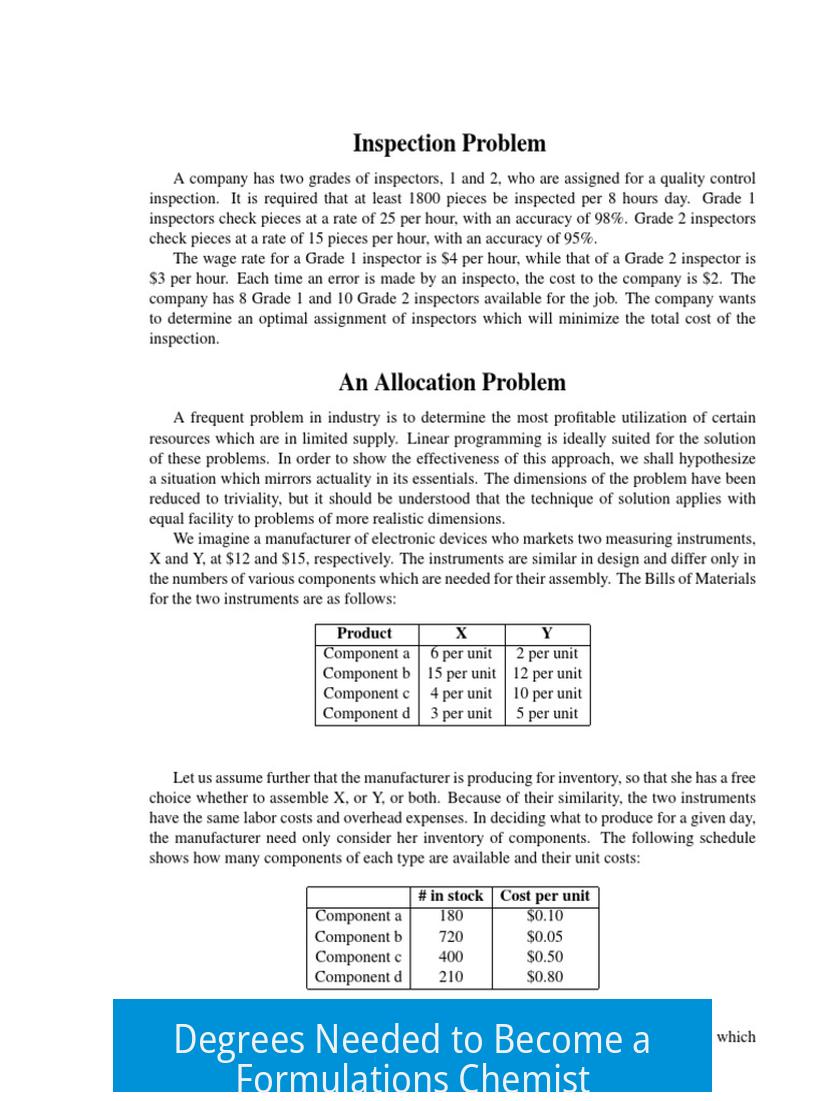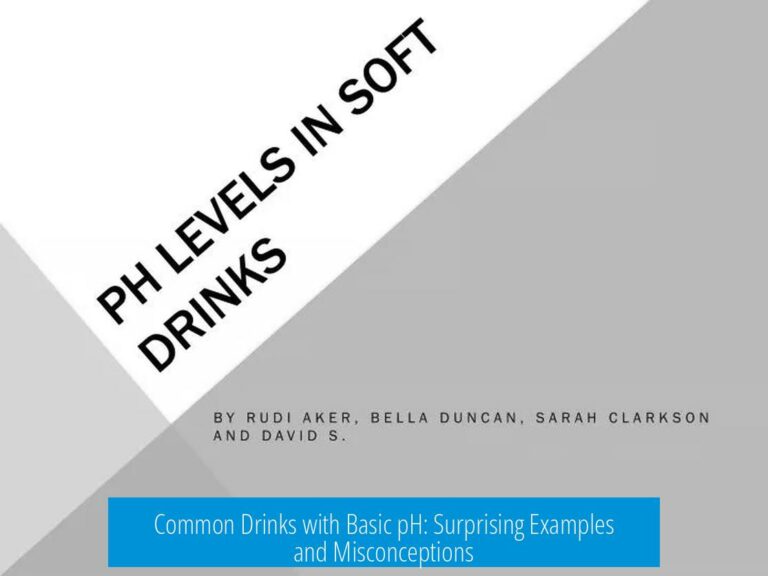Degrees Needed to Become a Formulations Chemist
 To become a formulations chemist, obtaining a degree in chemistry, chemical engineering, materials science, biochemistry, or a related STEM field is essential. A bachelor’s degree is often sufficient to start, but advanced roles or specialization may require a master’s degree, particularly in cosmetic science or pharmaceutical sciences.
To become a formulations chemist, obtaining a degree in chemistry, chemical engineering, materials science, biochemistry, or a related STEM field is essential. A bachelor’s degree is often sufficient to start, but advanced roles or specialization may require a master’s degree, particularly in cosmetic science or pharmaceutical sciences.
Undergraduate Degrees Recommended

The cornerstone for entering formulations chemistry is a Bachelor of Science (BS) degree in one of several disciplines:
- Chemistry: A BS in chemistry provides core knowledge essential for formulation development. Majoring in chemistry with undergraduate research experience, especially in labs focused on polymers, inks, or cosmetic formulations, is beneficial.
- Chemical Engineering: This degree offers strong analytical and process skills. Some formulation chemists come from this background, often branching into ingredient sales or formulation development.
- Materials Science/Material Engineering: These fields overlap with formulation chemistry, particularly with polymers used in cosmetics and coatings. Programs like polymer science can provide tailored expertise.
- Biochemistry/Biology: Particularly useful in cosmetic formulations where understanding biological interactions is crucial. A major in biology complemented by a chemistry minor or vice versa is a recommended path.
Graduate Degrees for Specialization
Graduate education can refine a chemist’s expertise and open higher-level opportunities:
- Cosmetic Science: Specific master’s programs such as those at the University of Cincinnati focus on cosmetic science. This field covers ingredient chemistry, formulation, regulation, and product development.
- Pharmaceutical Sciences or Pharmaceutics: Graduate degrees in pharmaceutics provide knowledge applicable to formulations used in medicines and cosmetics, emphasizing drug delivery and stability.
Key Skills and Specializations in Formulation Chemistry
Beyond degrees, certain skills drive success in formulation chemistry:
- Chemical engineering principles
- Industrial chemistry techniques
- Organic chemistry knowledge
- Design of experiments (DoE)
- Polymer chemistry and particle technology
- Hands-on laboratory experience in formulation and testing
- Rheology to understand flow properties of formulations
Programs like polymer science or coatings science incorporate these skill sets, notably at universities such as Cal Poly San Luis Obispo.
Gaining Practical Experience
Work experience often complements academic qualifications:
- Starting in quality assurance or production roles helps understand product testing and raw materials.
- Internships through industry associations like the Society of Cosmetic Chemists provide exposure and networking opportunities.
- Apprenticing under senior chemists in small manufacturing settings builds practical formulation skills.
Educational and Career Path Advice
Most STEM degrees provide a strong foundation for entry into formulation chemistry, including chemical technology, materials sciences, and related fields. While a specialized cosmetic science degree is valuable, it is not mandatory.
Distance learning and online programs, such as those by the Institute of Personal Care Science or the University of Cincinnati, enable flexible education tailored for working professionals or those seeking initial exposure.
Geographical Considerations
For individuals based in Southern California, pursuing degrees in materials engineering or polymer science at institutions like Cal Poly SLO offers localized, relevant training. The region’s cosmetic industry workforce sometimes involves long commutes, highlighting the importance of accessible education and job opportunities.
Summary of Key Points
- A bachelor’s degree in chemistry, chemical engineering, materials science, or biochemistry forms the academic base for formulation chemistry.
- Specialized master’s programs in cosmetic science or pharmaceutical sciences enhance career prospects.
- Develop skills in organic chemistry, polymer chemistry, rheology, and experimental design.
- Gain hands-on experience via internships, quality assurance roles, or mentorship under experienced chemists.
- STEM backgrounds are widely accepted; specialized degrees are optional but advantageous.
- Online education programs offer flexible pathways into formulation chemistry.
- Regional programs in Southern California focus on materials and polymer science relevant to cosmetic formulations.





Leave a Comment